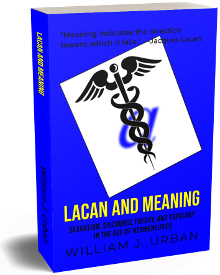LACAN AND MEANING
SEXUATION, DISCOURSE THEORY, AND TOPOLOGY IN THE AGE OF HERMENEUTICS
CHAPTER 1
PETITIONS TO MEANING
— page 27 —
itself as Gadamer claims. For Habermas, such a claim reveals a de facto acceptance of repressive conditions. He reasons that if one dispenses with the notion of autonomous subjectivity, a conservative disposition emerges in its place. Hence Gadamer’s rehabilitation of the authority of tradition is highly suspect. Devoid of a critical consciousness, nothing prevents the acceptance of prejudices whose authority is based on force rather than reason. To combat this threat to enlightened subjectivity, in true Diltheyan style critical theory turns to the natural sciences. In contrast to Betti and Hirsch, however, what these sciences offer cannot be utilized without modification. Habermas, for instance, finds that modern positivism has completely removed the knowing subject as a reference point. Under its reign, the constitution of objects of possible experience is no longer problematic, and so the very inquiry into their meaning appears superfluous and even irrational. Gadamer would certainly agree. Yet Habermas insists that the scientific attitude is indispensible for guiding hermeneutics, provided science itself is made to self-reflect.
Apel provides a way this could be done. He explains that a natural science like positivism operates with a Kantian subjectivity, a pure consciousness of objects. This reflective a priori cannot extract meaning from the world. But by supplementing it with a bodily a priori of knowledge which can, a critical consciousness emerges at the crossroads of hermeneutics and scientism. Accordingly, this subject is capable of setting into play a dialectical relation between the human and the natural sciences. On the one hand, the natural sciences excel in explaining events by subsuming them under general laws. But when these events are historical, its causal explanations fall short. For what ultimately conditions these events are not causal forces but the intentions of historical individuals. These intended meanings can only be understood with the a priori concomitant to the human sciences. On the other hand, the human sciences need the natural sciences to complete its historical task. When the Enlightenment fatally questioned the immediacy of understanding tradition, the human sciences arose to ensure its continued transmission. Yet the fragmentation of what is to be understood proves too great, requiring the methodical thought of the natural sciences to rationally integrate results into objectifications. As might be expected, the dialectical mediation of scientific explanation and hermeneutical understanding culminates in psychoanalysis. Both Habermas and Apel consider psychoanalysis a self-reflective discipline productive of objectivations equivalent to a critique of ideology.
Any account of the original debates would be remiss for omitting Ricoeur. His work is significant for establishing the very framework future commentators would use to contextualize the issues at stake. But while his earlier work distinguishes the two sides well enough, it is not until the 1970s that his more concerted position emerges. Consider his massive reading of Freud in 1965. In the opening chapters meaning is articulated as hidden in a complex intentional structure. Similar to critical theory, a Freudian excavation appears necessary to
« prev next »full text of Lacan and Meaning
FREE Lacanian-themed puzzles

